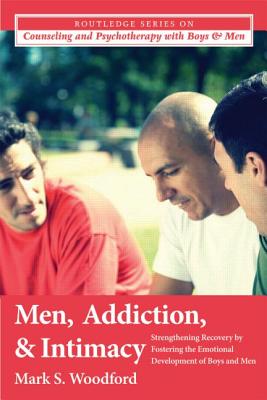In the substance abuse and addiction treatment realm, males outnumber females two to one. While gender-issues are seen as a key element of women’s treatment, the acknowledgement that males are "gendered beings" who have lived lives full of male-specific developmental challenges is often overlooked. This text takes a developmental lifespan approach to examine the neurobiological and psychosocial factors associated with substance use disorders for males, specifically in relation to emotional growth and awareness, and how these areas, in turn, affect the development of healthy relationships. Theoretical concepts from the field of interpersonal neurobiology, the psychology of boys and men, and the substance abuse and addiction literature are interwoven with practical clinical examples to help elucidate how the notion of fostering emotional development can strengthen the treatment and recovery processes with boys and men. Relevant case examples are included that illustrate work with males of all ages and address a variety of factors associated with culture, ethnicity, race, religion, and sexual orientation. Mental health practitioners will find this a valuable guide to understanding male development in relation to substance use and abuse and providing more comprehensive, gender-responsive counseling and assessment practices.
In the substance abuse and addiction treatment realm, males outnumber females two to one. While gender-issues are seen as a key element of women’s treatment, the acknowledgement that males are "gendered beings" who have lived lives full of male-specific developmental challenges is often overlooked. This text takes a developmental lifespan approach to examine the neurobiological and psychosocial factors associated with substance use disorders for males, specifically in relation to emotional growth and awareness, and how these areas, in turn, affect the development of healthy relationships. Theoretical concepts from the field of interpersonal neurobiology, the psychology of boys and men, and the substance abuse and addiction literature are interwoven with practical clinical examples to help elucidate how the notion of fostering emotional development can strengthen the treatment and recovery processes with boys and men. Relevant case examples are included that illustrate work with males of all ages and address a variety of factors associated with culture, ethnicity, race, religion, and sexual orientation. Mental health practitioners will find this a valuable guide to understanding male development in relation to substance use and abuse and providing more comprehensive, gender-responsive counseling and assessment practices.
Get Men, Addiction, and Intimacy by at the best price and quality guranteed only at Werezi Africa largest book ecommerce store. The book was published by Taylor & Francis Ltd and it has pages. Enjoy Shopping Best Offers & Deals on books Online from Werezi - Receive at your doorstep - Fast Delivery - Secure mode of Payment
 Jacket, Women
Jacket, Women
 Woolend Jacket
Woolend Jacket
 Western denim
Western denim
 Mini Dresss
Mini Dresss
 Jacket, Women
Jacket, Women
 Woolend Jacket
Woolend Jacket
 Western denim
Western denim
 Mini Dresss
Mini Dresss
 Jacket, Women
Jacket, Women
 Woolend Jacket
Woolend Jacket
 Western denim
Western denim
 Mini Dresss
Mini Dresss
 Jacket, Women
Jacket, Women
 Woolend Jacket
Woolend Jacket
 Western denim
Western denim
 Mini Dresss
Mini Dresss
 Jacket, Women
Jacket, Women
 Woolend Jacket
Woolend Jacket
 Western denim
Western denim
 Mini Dresss
Mini Dresss






























































